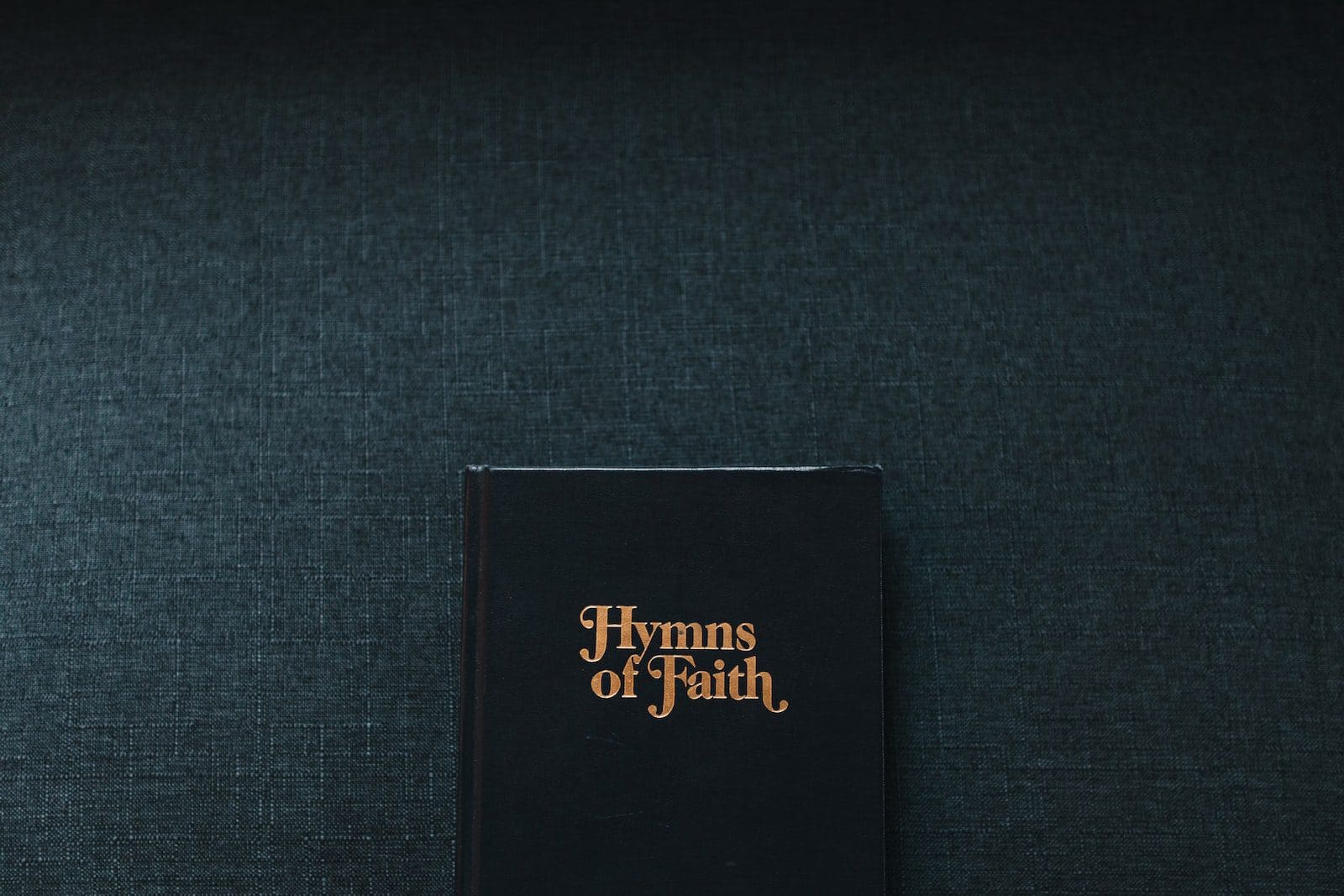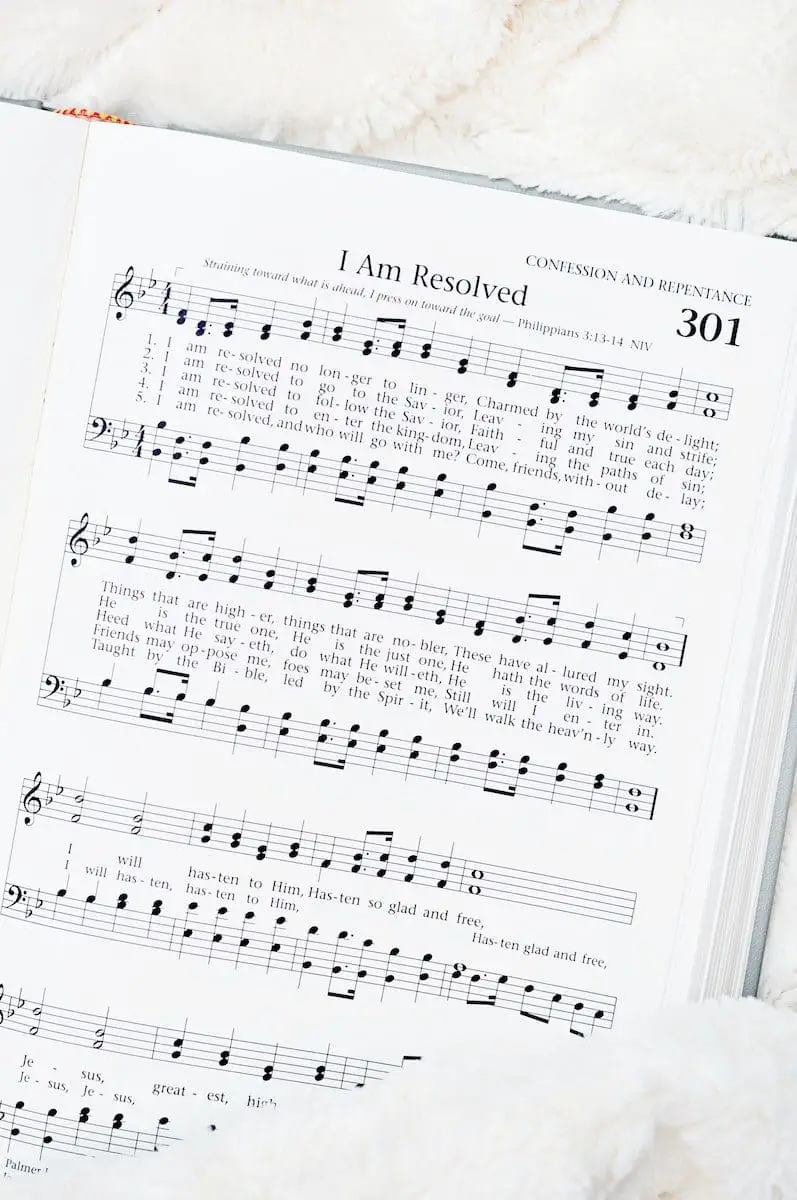Psalms, Hymns and Spiritual songs are a way to get closer to God. All three are used to worship God either by singing or reading them.
Depending upon the terminology, they have certain differences. Songs are compositions of music that are meant to be performed with a human voice.
Songs can be different depending on the sound, silence, pitch, repetition or variations. Lyrics play an important role in music or a song.
Key Takeaways
- Psalms are poetic compositions from the Bible, specifically the Book of Psalms, which praise and worship God.
- Hymns are religious songs with lyrics that express adoration or thanksgiving to God, composed by notable Christian figures.
- Spiritual songs are inspired by personal experiences and emotions, conveying messages of faith, hope, and love more informally.
Psalms vs Hymns vs Spiritual Songs
Psalms are religious songs or poems from the book of Psalms in the Bible. They were originally written as part of Jewish worship, and are still used in both Jewish and Christian worship today. Hymns are religious songs that are written in a structured format and have multiple verses.

Psalms or The book of Psalms is a chapter in the Old Testament of the bible. It is also a third section in the Tanakh.
Psalms mean instrumental music. The word is believed to be originated in Greece.
Psalms is a collection of all the literary works, including Hebrew psalms, Jewish, Eastern and Western Christian. Mostly the songs are linked to David, the King of that time.
It is believed to be written between somewhere 9th and 5th century BC. Hymns are a form of song that is addressed to a deity or deities.
It is sung in the form of prayers. The term hymn is derived from a Greek word the writer who writes hymns is called Hymnist.
When there is a composition of hymns or singing of hymns is done, it is called Hymnody. Hymns are very common in Christianity, but in other religions also, hymns are sung in praise of God.
Spiritual songs have many different names, it is a genre of music. It originated from the creation of African-Americans.
It is purely and entirely their sole creation. Spiritual songs started when there was a slave practice prevalent in the world.
African culture has a lot to do with spiritual songs. From the 19th century onwards, all the songs were folk were termed spiritual songs, it has many different categories.
Comparison Table
| Parameter of Comparison | Psalms | Hymns | Spiritual Songs |
|---|---|---|---|
| Origin | Bible | Egyptian and Greek culture | African-Americans |
| Meaning | Collection of religious verses. | A poem or song in praise of God. | Songs that are spontaneous and inspiring. |
| Term | Instrumental music | A song of praise | Type of sacred song |
| Types | Royal Psalms, Communal laments, Individual laments etc. | Haiku, free verse, sonnets, and acrostic poems | sing songs, work songs, and plantation songs. |
| Characteristics | Praise of God | Emotional, poetic, literary in style, and spiritual in quality. | Religious and social content, changing styles etc. |
What are Psalms?
Psalms can be an individual as well as multiple. Sometimes multiple Psalms are composed in a single composition.
Psalms tend to be part of a larger group. The Book of Psalms or Psalms has always been an important part of Christianity and catholic liturgy.
The Liturgy of hours is denoted as the chanting or singing of psalms into the church using psalms tones. The themes of most of the psalms are the praise of God.
His beneficence and power, his creation of the world, his deliverance of the people of Israel. Various types of Psalms include hymns, royal Psalms, Communal laments, Individual laments, individual thanksgiving psalms etc.
Many authors have composed Psalms, and their authorship is still debated. It was composed between the 9th and 5th centuries BC.

What are Hymns?
A hymn is a religious song in the form of prayers or adoration. It is addressed to God and deities.
In Greek, the term hymn means ‘songs of praise’. Hymns are very common in Christianity, but in other religions of the world, hymns are also prominent, especially in India.
Hymns have existed in Greek and Egyptian culture since time innumerable. Some of the very oldest surviving hymns in the world can be found in Greek culture.
Hymns are not meant for instrumental composition. Christian hymnody is based on the Book of Psalms.
Christian hymns are all related to the praise of God and directly or indirectly connected to Jesus Christ.

What are Spiritual Songs?
Spiritual songs are also called Negro spirituals, African-American spirituals or Spiritual music it is the genre of music that was started by African Americans.
The trend of composing spiritual songs started when there was a slave trade going on in the world. Spiritual songs contain a range from plantation songs to work songs.
Which eventually led to the creation of gospel songs in church. Since the 19th century, all the songs that come in the category of folk songs are termed Spiritual songs.
It is rooted back to biblical stories and the hardships faced by negros or African Americans from the 17th century to the 1860s. Earlier, spirituals were passed.
Orally from one generation to another generation. It was not written from the Bible, and stories were memorised and then translated into songs.

Main Differences Between Psalms, Hymns and Spiritual Songs
- Psalms originated in Christian and Jewish holy texts, i.e. The Bible and the Tanakh. The origins of Hymns are believed to be in Egyptian and Greek cultures. The origin of spiritual songs was by African-Americans.
- The meaning of Psalms is a collection of religious verses in a book called the Book of Psalms. The meaning of a hymn is a poem or a song in praise of God. The meaning of spiritual songs is that songs are spontaneous and inspiring.
- The term ‘Psalms’ mean Instrumental music. The term ‘Hymns’ means a song of praise. The term ‘Spiritual songs’ means a type of sacred song.
- Types of Psalms include Royal Psalms, Communal laments, Individual laments etc. Types of Hymns include Haiku, free verse, sonnets, and acrostic poems.
- Types of spiritual songs include sing, blues, gospel, work, and plantation songs.
- The characteristic of Psalms is the praise of God. The characteristic of Hymns is emotional, poetic, literary in style, and spiritual in quality.
- Characteristics of Spiritual songs are religious and social content, changing styles etc.
- https://books.google.com/books?hl=en&lr=&id=A7ZVAAAAcAAJ&oi=fnd&pg=PA9&dq=Psalms,+Hymns+and+Spiritual+Songs&ots=sG3t4zxajC&sig=-0vHriXaBBUGkgGCJ2Llhk1kipA
- https://books.google.com/books?hl=en&lr=&id=XJlDAQAAMAAJ&oi=fnd&pg=PA7&dq=Psalms,+Hymns+and+Spiritual+Songs&ots=mlGn97R04Z&sig=MAOMaslxm3_JlkGYnD_QyarTcAw

The article offers an extensive exploration of the origins and characteristics of Psalms, Hymns, and Spiritual Songs. The section on hymns provides valuable insights into their cultural and religious significance.
I appreciate the detailed breakdown of Psalms, Hymns, and Spiritual Songs. The historical context provided for spiritual songs is particularly intriguing.
The author has done a great job shedding light on the origins and characteristics of psalms, hymns, and spiritual songs. It’s an enlightening read for anyone interested in religious music.
Absolutely! The article presents the information in a clear and organized manner, making it easy to comprehend.
I found the section on spiritual songs particularly fascinating. It’s impressive how the article delves into the historical and cultural aspects of these songs.
This article provides a comprehensive understanding of the differences between psalms, hymns, and spiritual songs. It covers their origins, meanings, and characteristics in a detailed manner. Very informative!
I couldn’t agree more. The depth of knowledge presented in this article is truly commendable. The comparison table is particularly helpful.
This article brings to light the intricate details of Psalms, Hymns, and Spiritual Songs. The comprehensive comparison table captures their unique attributes effectively.
I agree. The detailed content and scholarly presentation make it a valuable resource for understanding the nuances of religious music.
Absolutely! The article’s analytical approach to differentiating these musical forms is highly impressive.
The article is quite insightful, especially in the comparative analysis of Psalms, Hymns, and Spiritual Songs. It provides a rich understanding of their origins and significance.
I couldn’t agree more. The in-depth exploration of spiritual songs in the context of African-American history adds a unique perspective to the article.
The article masterfully dissects the origins and meanings of Psalms, Hymns, and Spiritual Songs. It’s a commendable scholarly work that offers a comprehensive understanding of these musical forms.
I couldn’t have said it better. The academic rigor and depth of analysis in this article are truly praiseworthy.
The article has a well-structured and well-researched approach to explaining the differences between Psalms, Hymns, and Spiritual Songs. It’s a great resource for music enthusiasts and scholars alike.